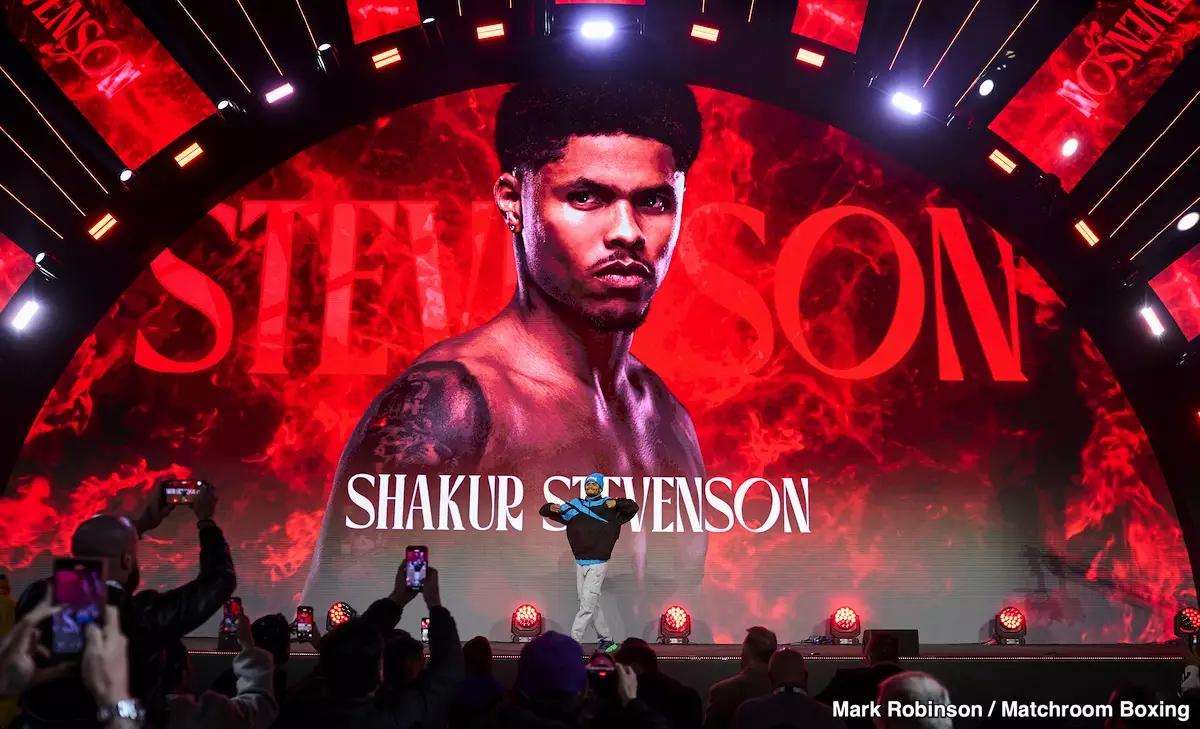Shakur Stevenson, the reigning WBC lightweight champion, finds himself preparing for an unexpected bout against Josh Padley, who will step in as his replacement opponent for the 12-round fight scheduled on February 22nd in Riyadh, Saudi Arabia. It’s intriguing how Stevenson, a fighter recognized for his technical skills and defensive prowess, seems to be walking into a match where the choice of Padley raises questions about the strategic implications behind this decision. Promoter Eddie Hearn had the task of picking a worthy contender from a pool of fighters, highlighting a chilling reality in boxing: the balancing act between preparing champions and protecting their records.
Opponents and Matchmaking Dynamics
Padley, with a record of 15 wins and only 4 knockouts, is perceived by many as a less formidable opponent compared to other potential candidates, such as the explosive Jadier Herrera, whose 16 wins include an impressive 14 knockouts. This selection seems aimed less at offering a worthy challenge to Stevenson and more at ensuring that he maintains his winning streak, as losing to a less-known fighter could derail planned mega fights, including a potential matchup against Gervonta Davis. Such considerations underscore the strategic reality of modern boxing, where reputation and marketability often take precedence over competitive integrity.
The Weight Limitations
Compounding the challenge of selecting a suitable opponent was the tight schedule imposed by the British Boxing Board of Control’s check-weight requirement. Hearn’s decision-making power was limited by this logistical hurdle, which leaves room for speculation regarding the depth of potential opponents across the lighter weight classes. It emphasizes the difficulty in finding a challenging fighter who can meet the specific weight requirements while also aligning with Hearn’s strategic vision for Stevenson’s career.
In an interview, Stevenson indicated his lack of familiarity with Padley, revealing a nonchalant attitude toward the upcoming fight. Despite acknowledging that he had only seen a brief portion of Padley’s fight footage, Stevenson projected confidence. “I’m not no chump,” he stated, emphasizing his own innovation and readiness to adapt. This statement is reflective of a fighter who is keenly aware of his skill set and insists on his capacity to handle whatever comes his way. His focus on his upcoming bout showcases his determination and the seriousness with which he approaches training, signaling to audiences that he is not one to underestimate any opponent.
As Stevenson looks past Padley, the hype surrounding a potential fight against Gervonta Davis looms large. Hearn’s efforts to set up this significant bout encapsulate what many fans wish to see in boxing: high-stakes clashes between top-tier fighters. Nonetheless, it raises the question: Has Stevenson’s selection of Padley undermined this buildup? By taking a seemingly easier route, there’s an implication that Stevenson may be more concerned with preserving his unbeaten record rather than risking it against tougher opponents. This sentiment breeds skepticism about his status as a champion in the eyes of fans who crave authentic competition.
While Shakur Stevenson prepares for what looks to be a straightforward fight against Josh Padley, the implications of this matchup echo loudly in the boxing community. How this decision will affect his future in the ring, particularly regarding the highly anticipated clash with Davis, remains to be seen.

